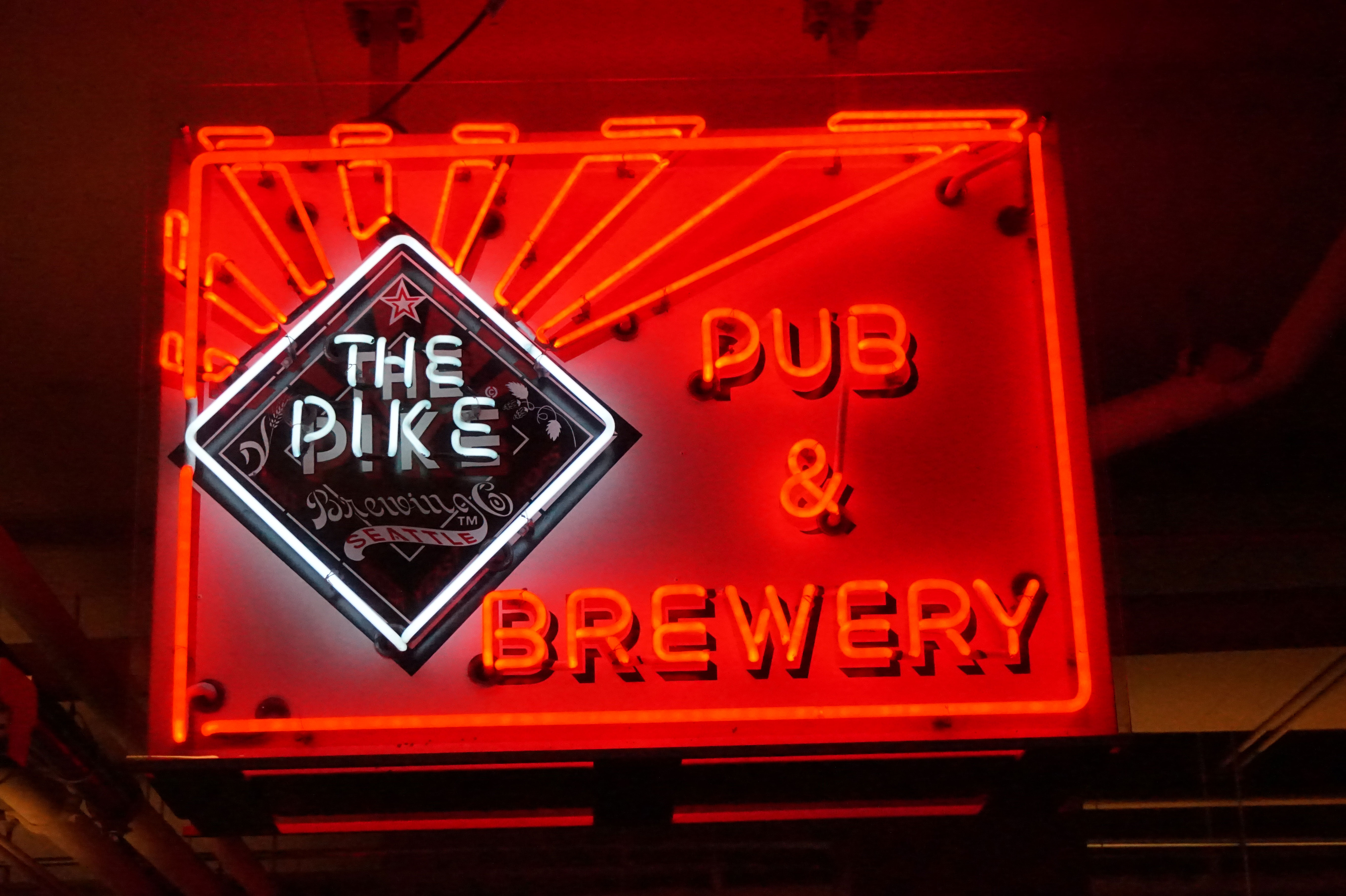
Seattle's trick lies in the area's hops. The climbing herbaceous plants that provide a bitter bite to America’s best brews grow abundantly in the Yakima Valley two hours east of Seattle, a sunny but superbly irrigated region of deep coulees and grassy hills which produces 74% of the US crop.
The first century of Seattle’s beer history was dominated by one name: Rainier Beer. Taking advantage of the high-quality hop crop, the company opened its first brewery in a red-bricked factory in Georgetown in 1884 and quickly morphed into the sixth largest brewery in the world. Although Rainier’s light malty brews might taste a little bland to sophisticated contemporary palates, slick advertising made the company’s famous neon ‘R’ sign a pre-Space Needle Seattle icon. When the beer industry was consolidated in the 1970s, Rainier underwent various takeovers that led to the famous brewery closing in 1999 as production shifted to California. You can still find bottled Rainier beer, along with plenty of newer micro-brews, in Georgetown’s down-to-earth Jules Maes Saloon, Seattle’s oldest pub.
Rainier’s demise coincided with the rise of microbreweries. Inspired by Britain’s ‘Campaign for Real Ale’, and driven in the US by bright young innovators in Seattle and Portland, the so-called craft beer movement aimed to put a bit of flavor back into insipid mass-produced beer which, by the 1970s, had become more about quantity than quality. Brewpubs (pubs that brew their own beer on the premises) had sprung up all over Seattle by the late 1990s, most of them specializing in small-batch, European-style beers that came loaded with all kinds of interesting accents and flavors.
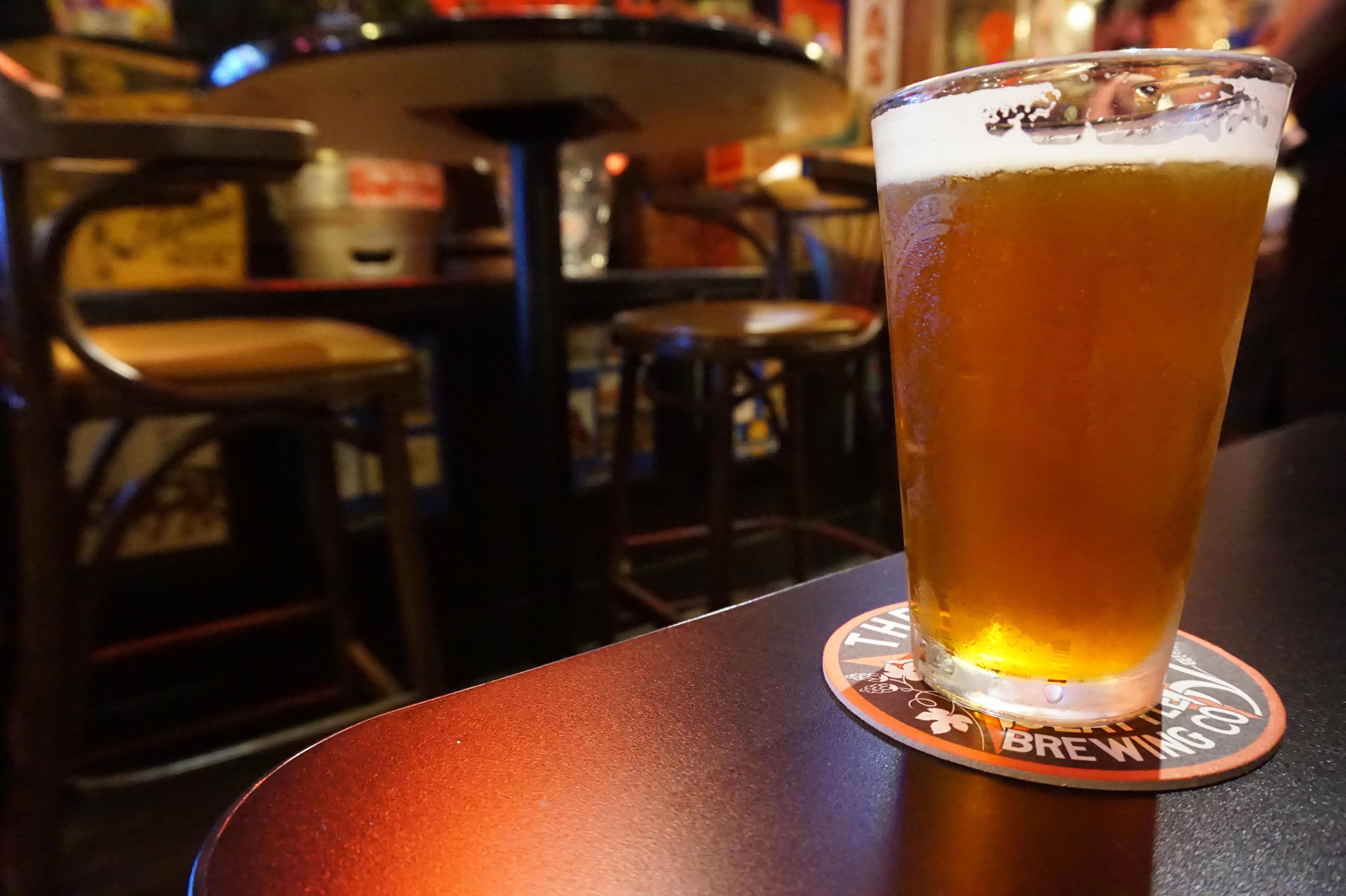
Today, going to Seattle and not visiting a brewpub is like going to Naples and neglecting to order pizza. For a fast introduction to the basics, hit Hale’s Ales, a relative ‘old-timer’ that was only the third microbrewery in Washington State when it opened in 1983. Hales’ large contemporary brewery and pub on the cusp of the Ballard and Fremont neighborhoods mixes seasonal brews with old favorites including its flagship tipple, Hale’s Pale Ale, a good entry point beer for beginners keen to learn how to differentiate their malt from their hops.
Pike Brewing Company
Gravitate next to Pike Place market, home of Pike Brewing Company, another well-established microbrewery that adheres to the market’s simple but passionately expounded philosophy of ‘meet the producer’ (brewery tours can be arranged). In their busy Pike Pub with its well-integrated vats and piping, you can witness the increasing sophistication of micro-brewing by pairing a beer with some gourmet pub grub. For a step up from pale ale, try Pike’s signature 5X stout, a heavy Guinness-like drink with an appealing dark chocolate flavor that not only offsets the effects of a soaking in the Seattle rain, but also acts as a perfect accompaniment to local Puget Sound oysters. This and other pairings can be discussed with the pub’s knowledgeable wait staff who, like expert oenologists, will talk you through the taste notes.
Elysian Brewing
For a classic Seattle beer, don’t leave town before imbibing an IPA (India Pale Ale). Elysian Brewing’s Immortal IPA personifies these strong, bitter ‘hop-forward’ beers that have become part of craft beer folklore on the US’s west coast, although at 6.3% alcohol per volume, it won’t take many to liberally loosen your tongue. Despite being bought out by Anheurser-Busch in January 2015, Elysian maintains several popular Seattle pubs, including its HQ in the trendy Capitol Hill neighborhood.
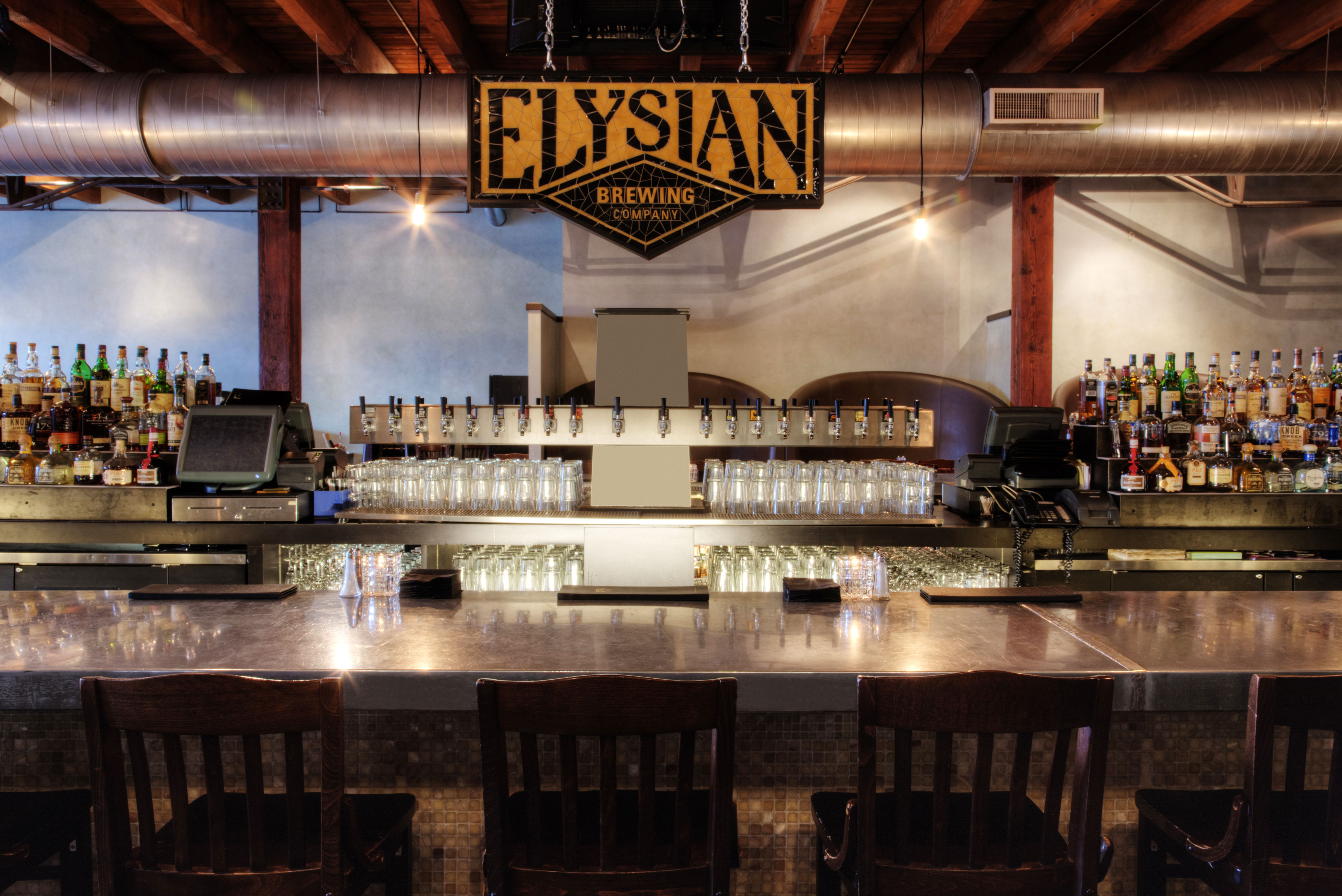
Emulating their ubiquitous coffee bar cohorts, the latest (and hippest) trend in the beer industry is in downsizing. The so-called nano-beer movement is populated by tiny local brewers who prefer to ferment high-quality, small-batch beers that emphasize fun and creativity over huge profit margins. Run by beer lovers and hobbyists operating out of garages and warehouses, nano-breweries have sprouted up all over Seattle in the last few years. Their modus operandi is significantly different to the microbreweries: instead of knocking out big-hitting flagship beers, the nanos rely on eternally changing menus of experimental brews and esoteric one-offs produced one barrel at a time.
Populuxe Brewing
For an insight into the growing nano-beer universe head to venerable Populuxe Brewing in the independent-minded north Seattle neighborhood of Ballard whose limited-hours tasting room has a handful of indoor tables, a rotating menu of around 10 beers and – bonus – a local food truck parked outside on selective nights each week. Should the weather cooperate you can enjoy an alfresco game of corn-hole with your pint.
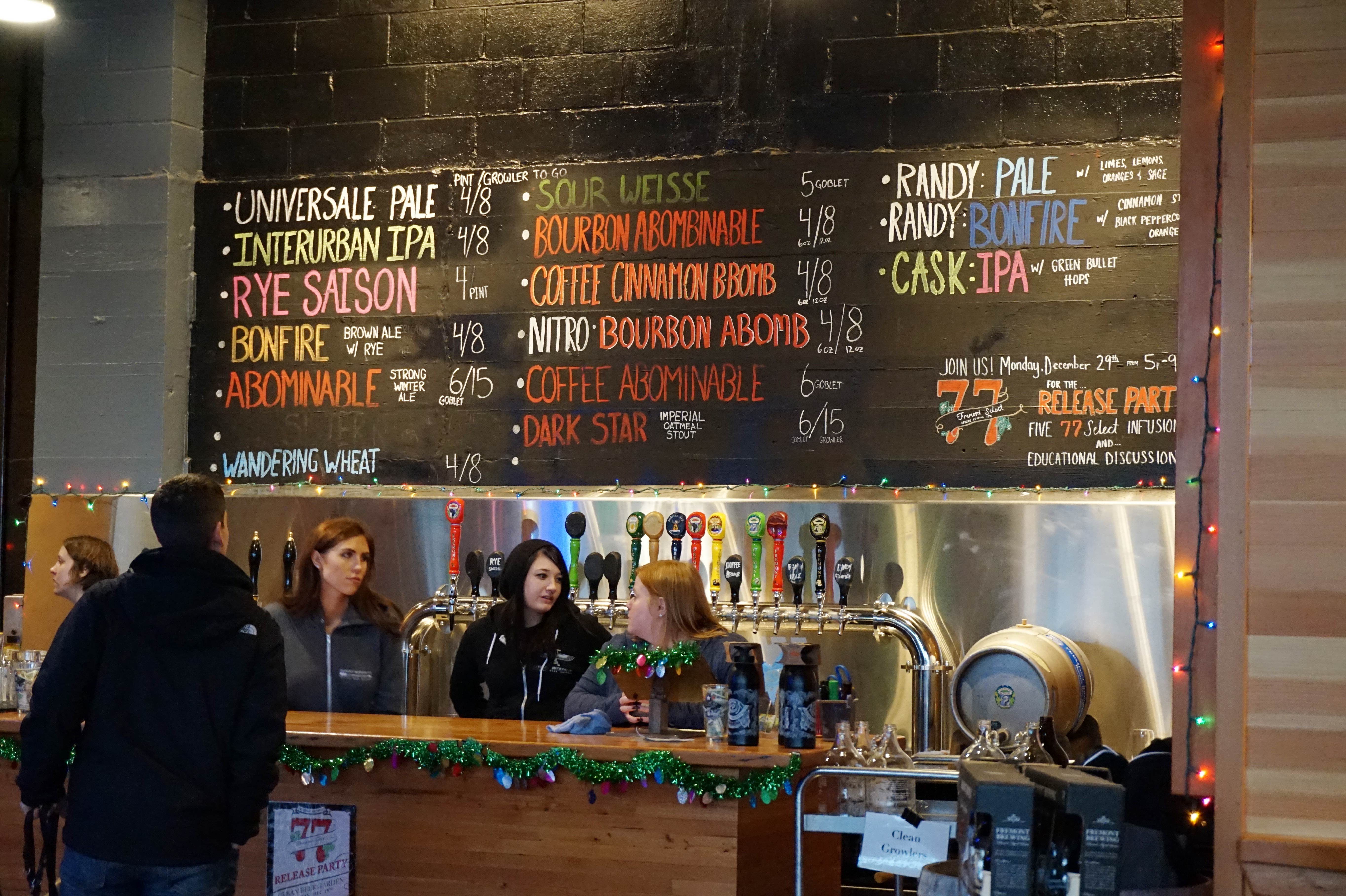
Not all of Seattle’s pubs are microbreweries staffed by bearded beer-makers. Brouwer’s in Fremont is better described as a ‘taproom’ which, rather than producing its own beer, stocks the brews of others – lots of them. Indeed, Brouwers, arguably, offers the finest beer selection in the city: an astounding 64 brews on tap along with over 300 bottled varieties. Rarely short of a bevy of drinkers propping up its bar, the establishment is revered by beer aficionados and neophytes alike for its warm, non-pretentious pub atmosphere and simple Belgian influenced food including pretzels, frites, steamed mussels and sausages.
Fremont Brewing Company
The Fremonters (lucky devils!) can count another ‘local’ in Fremont Brewing Company, a relatively new microbrewery which – in keeping with current trends – sells its wares via an attached tasting room rather than a full-blown pub. Not only is the company’s beer divine (try the seasonal bourbon barrel-aged Abominable beer between November and January), the industrial-chic tasting room and adjacent ‘urban beer garden’ are highly inclusive spaces where pretty much everyone in the ‘hood comes to hang out at communal tables. A liberal policy on pets and minors keeps things congenial, meaning you’ll see more dogs and kids than hardened drinkers as you work your way through trays of small samplers. Although there’s no food service, silver bowls of free pretzels soak up any light-headedness.
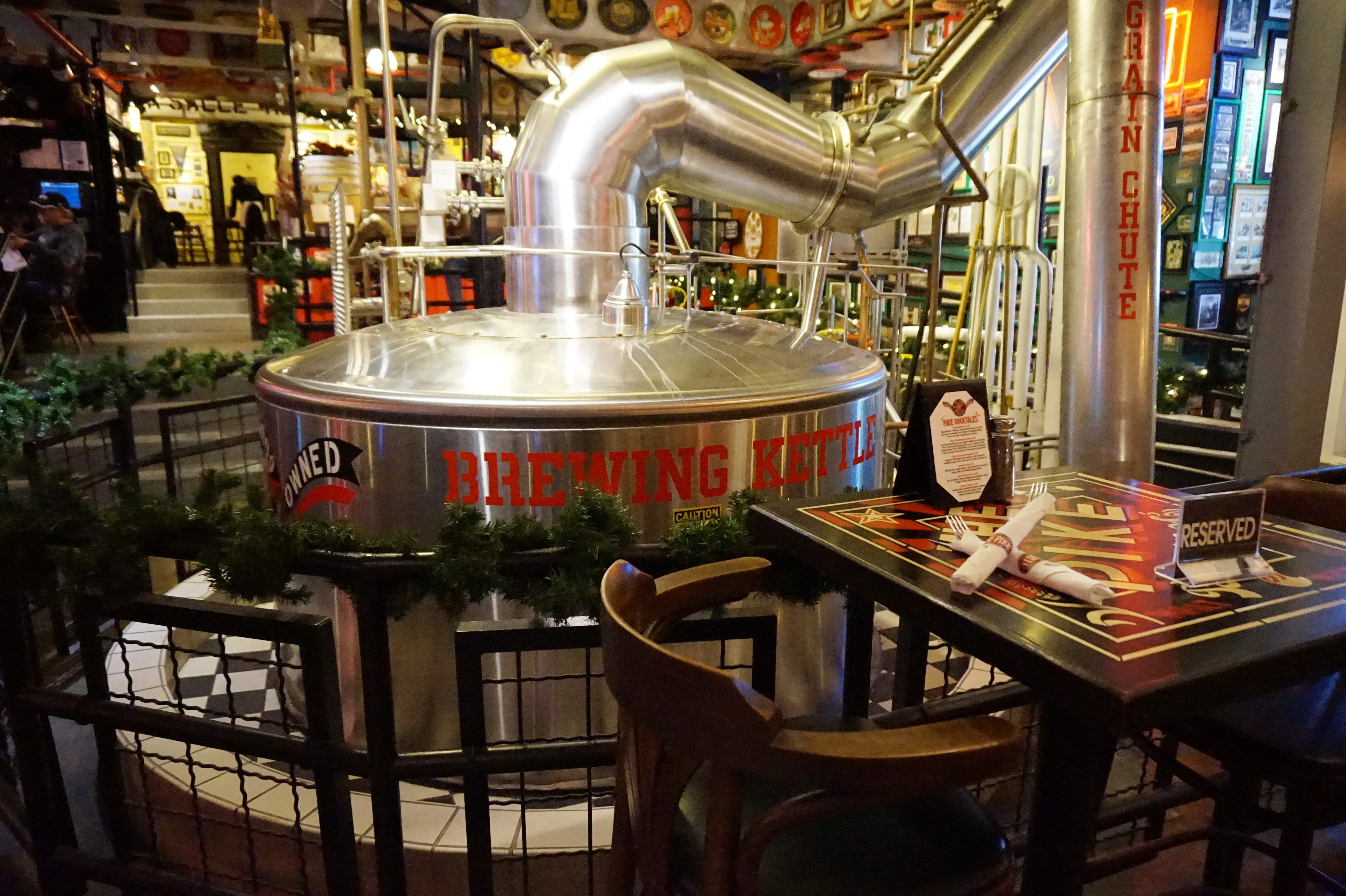
Beer culture carries little of the latent snobbery associated with the wine world, but the sheer quantity of Seattle’s contemporary brews can still make it confusing to beginners. To simplify matters, join a city brewery tour. Road Dogs (who visit three local microbreweries) offer one of the most comprehensive.